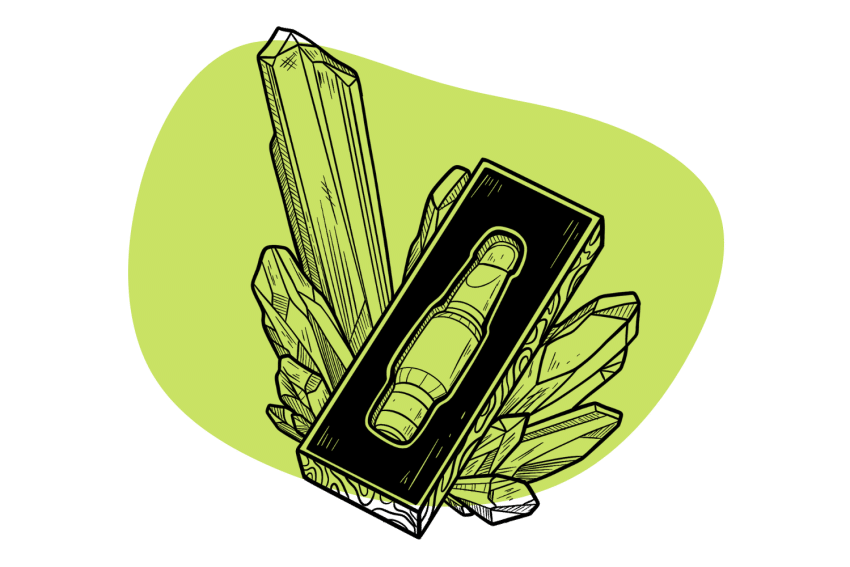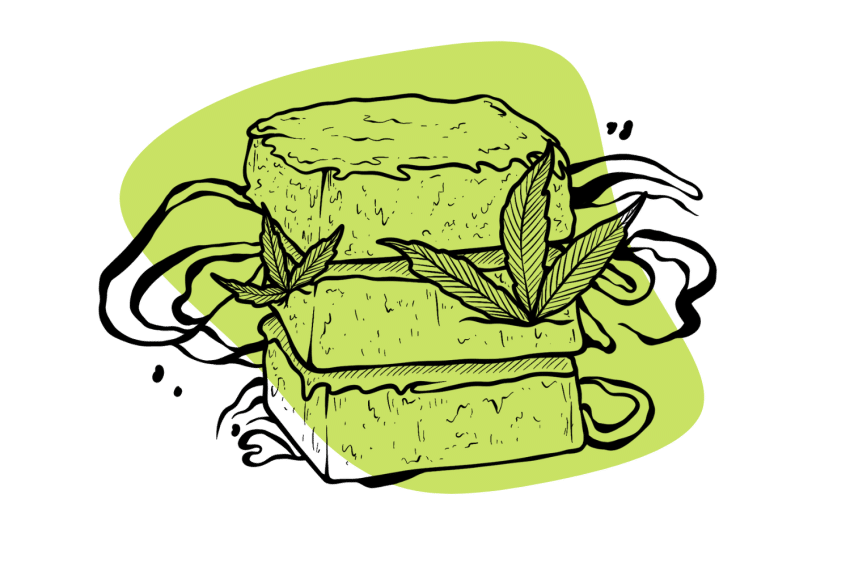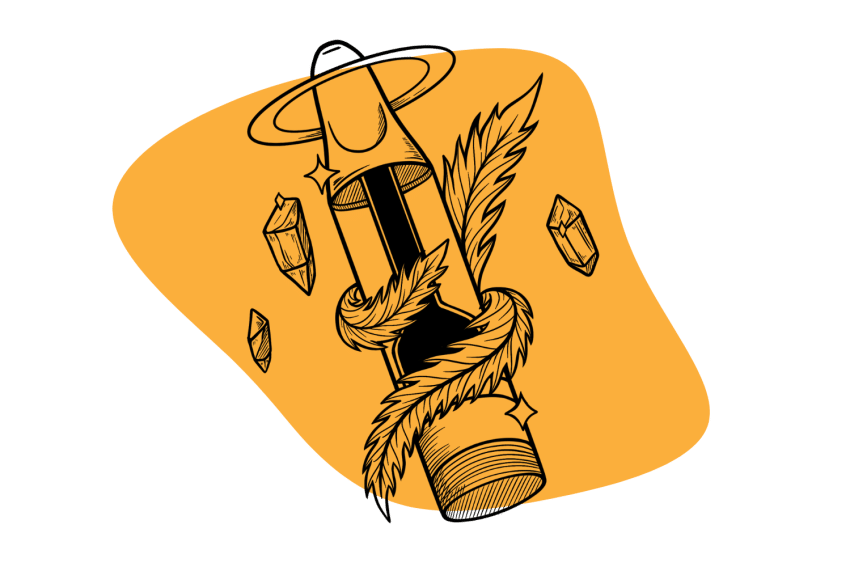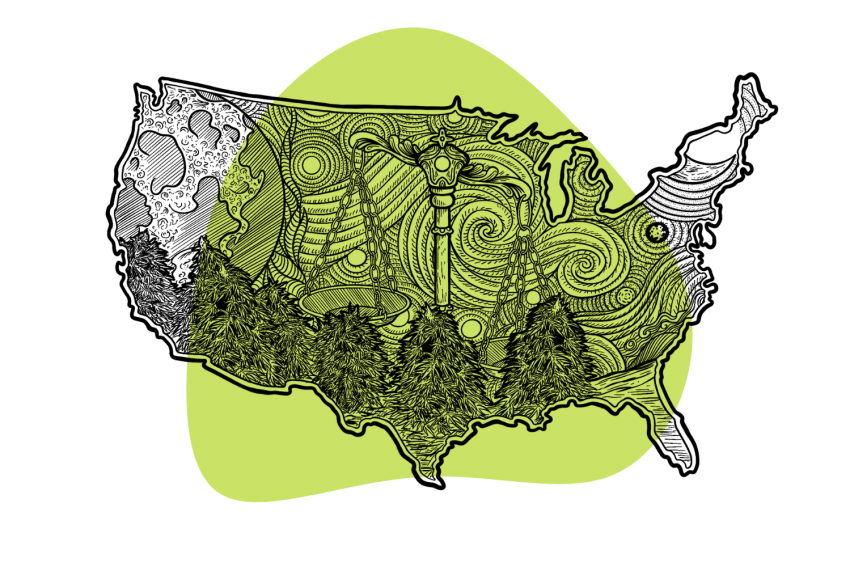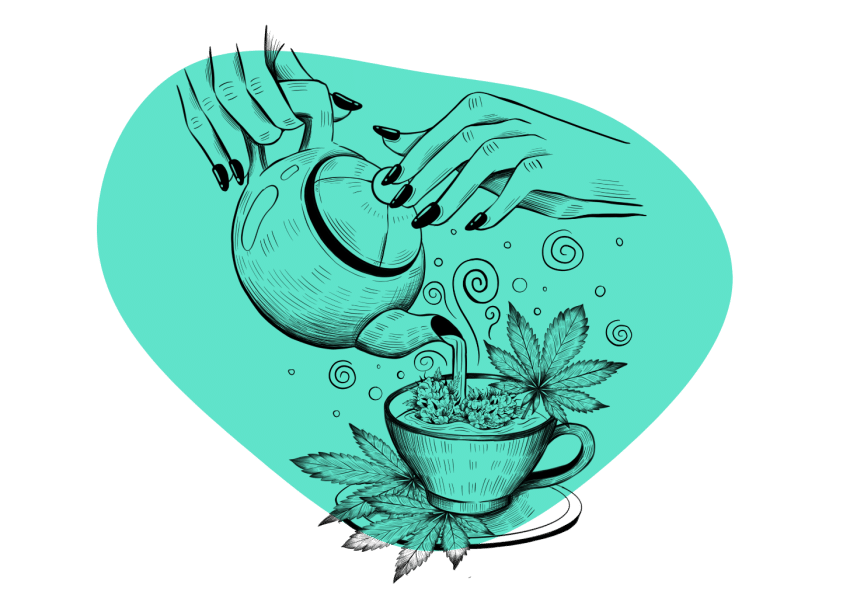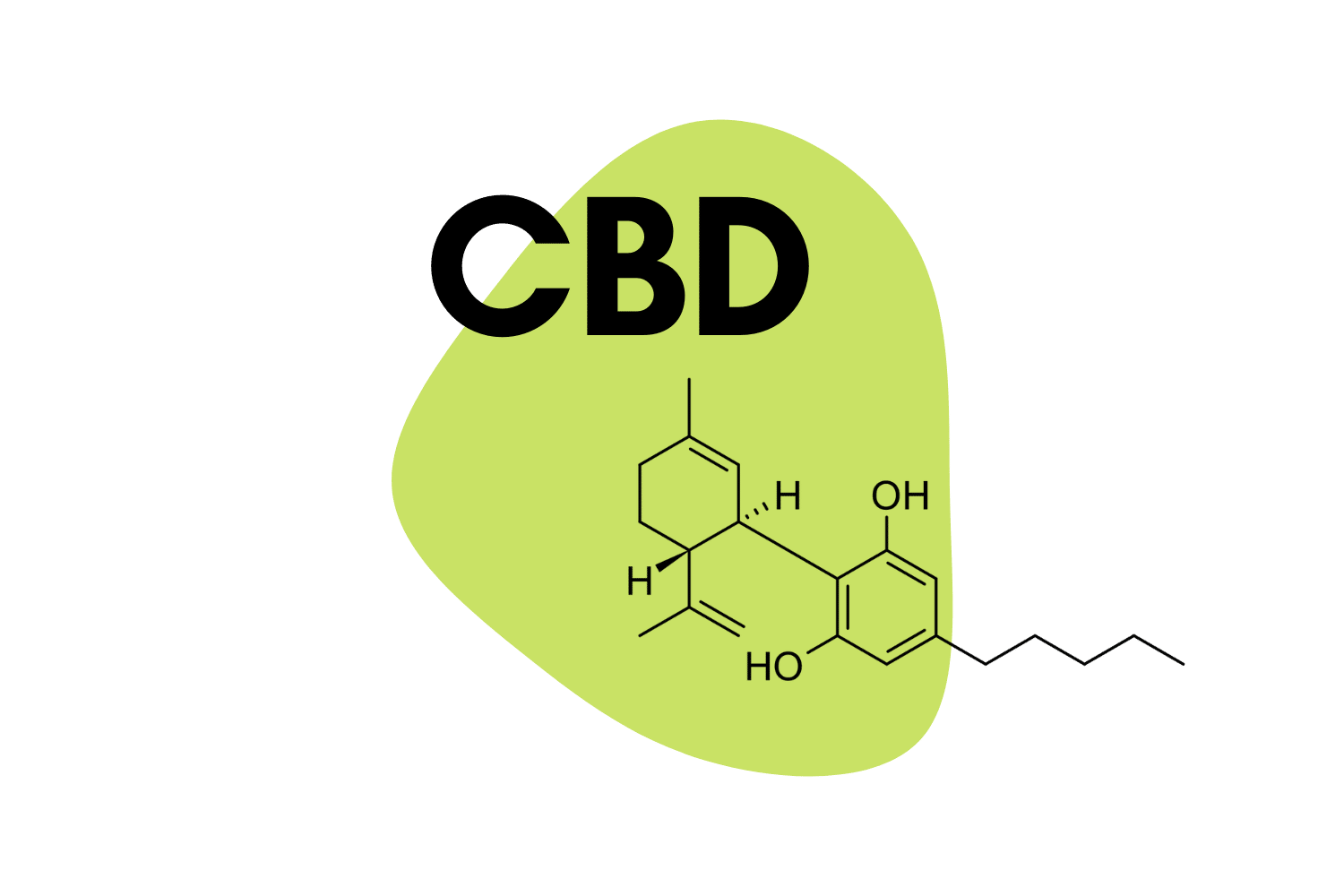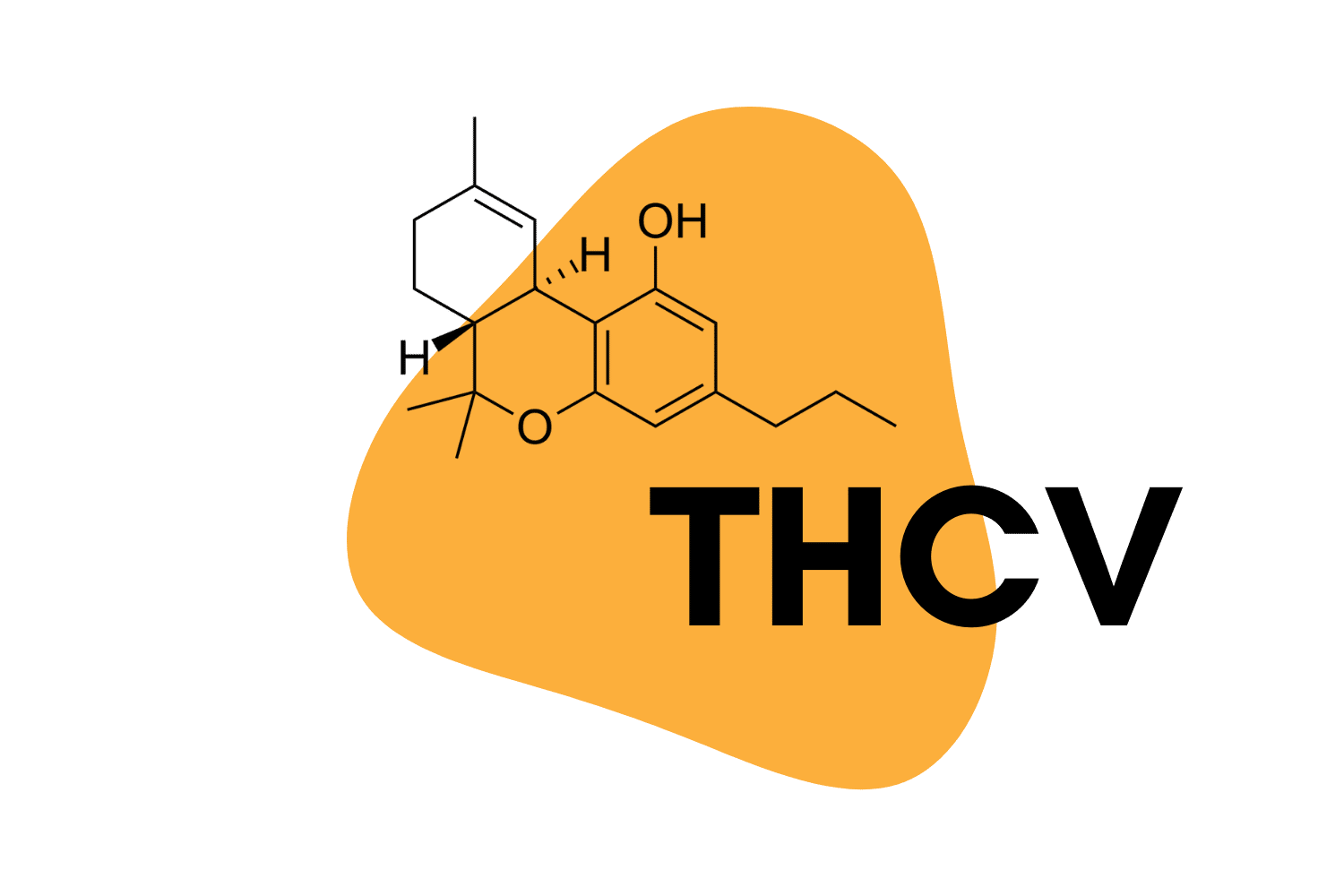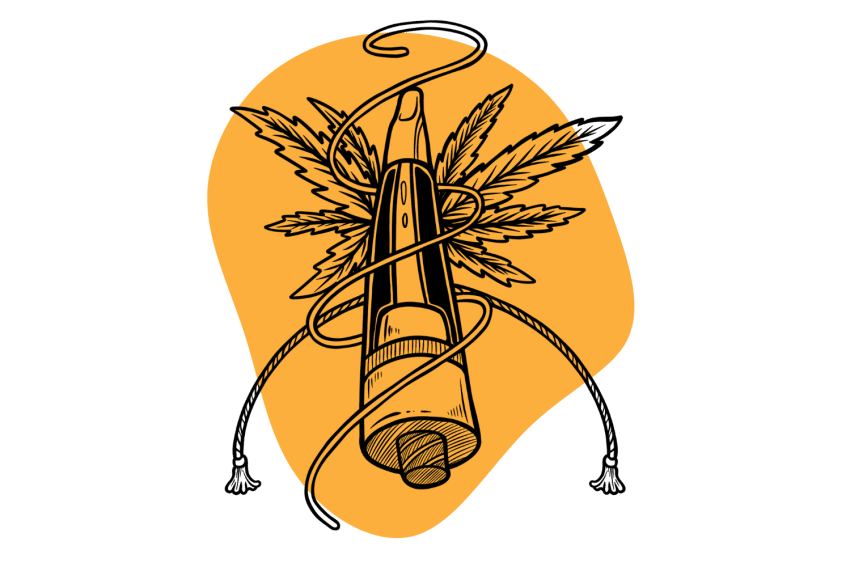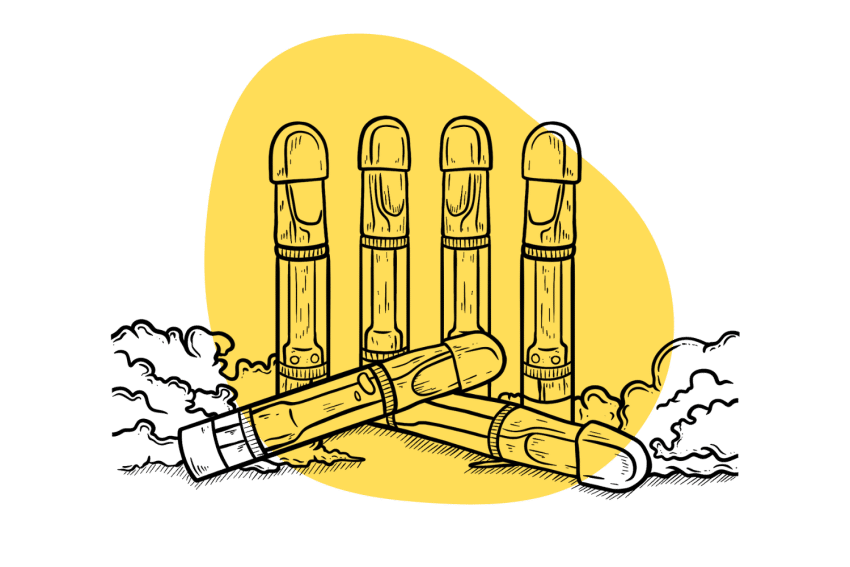Why Does Weed Make You Hungry? The Link Between THC & Appetite
Food and weed go together like peanut butter and jelly — everything just tastes better. Ever wonder why?
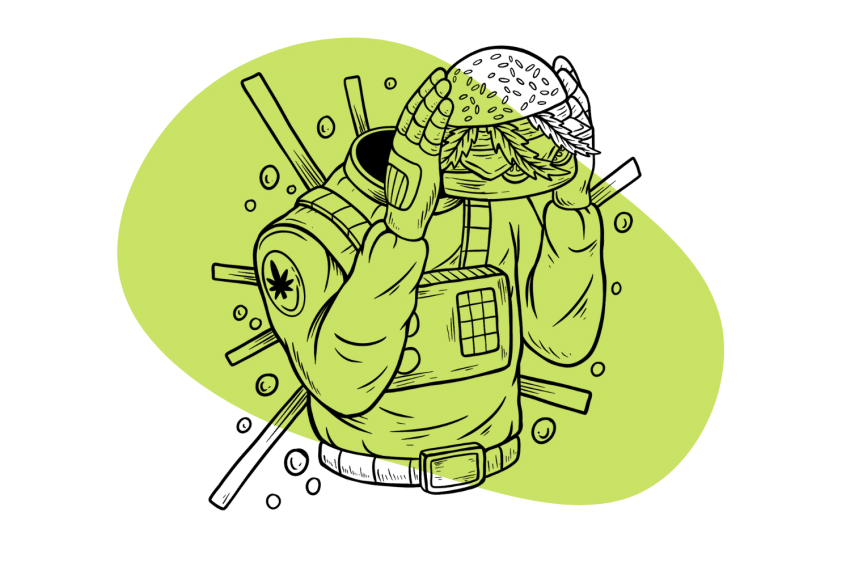
The short answer is THC. Cannabis doesn’t make you hungry per se but rather tricks your brain into feeling hungry [1].
The long answer is that THC increases the activity of pro-opiomelanocortin (POMC) neurons, which are typically associated with suppressing appetite. When overstimulated, however, they can provoke hyperphagia (appetite stimulation).
THC activates protein receptors found in certain areas of the body that are key for activating appetite. When cannabinoid receptors are activated by consuming weed (be it by smoking or eating an edible), your body produces more ghrelin, promoting PMOC activity. This, in turn, increases your appetite [2].
THC is the most well-known cannabinoid when it comes to stimulating appetite — so much so that it’s even used medically. Doctors use it to help cancer patients regain their appetite after and during chemotherapy [3].
But THC isn’t the only cannabinoid that enhances appetite: cannabigerol (CBG) has also been studied as an appetite stimulant. As it doesn’t have the same psychoactive effects as THC, researchers have suggested it as an alternative for medical treatment [4].
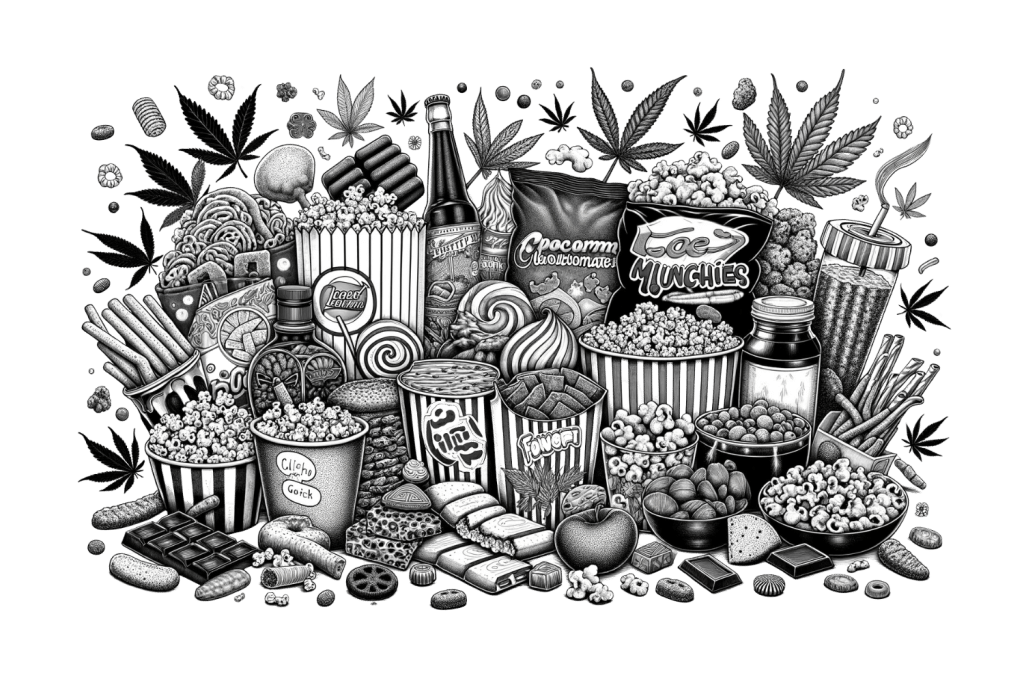
Why Does Food Taste Better When You’re High?
This is another well-known effect of the munchies — not only do you feel hungrier and crave specific types of food, but they also taste better.
The answer is, again, cannabinoids. When THC interacts with your brain to increase your appetite, it also affects brain receptors associated with taste. This makes the brain’s response to sweet food stronger [5] while also making you crave fatty foods.
THC activates receptors in the basal ganglia and promotes dopamine release, enhancing the pleasure of eating.
But THC does more than impact your brain and your taste buds — it also enhances your sense of smell. Smell and taste are closely linked, so anything that enhances your sense of smell will also improve your sense of taste.
How Long Do the Munchies Last?
Every person reacts differently to weed, so the answer varies depending on individual reactions and how much marijuana is consumed.
If you smoke weed, the effects take up to 10 minutes to manifest and last for 2 to 3 hours. But if you eat or drink cannabis, the effects won’t manifest until 2 hours later, with the effects lasting between 6 and 8 hours (if not more).
Munchies usually start during the comedown, but your mileage may vary.
The munchies might also vary depending on how you consume cannabis. Studies show taking THC via a rectal suppository capsule increases appetite significantly more than oral ingestion or smoke inhalation [6]. However, most people don’t use it this way.
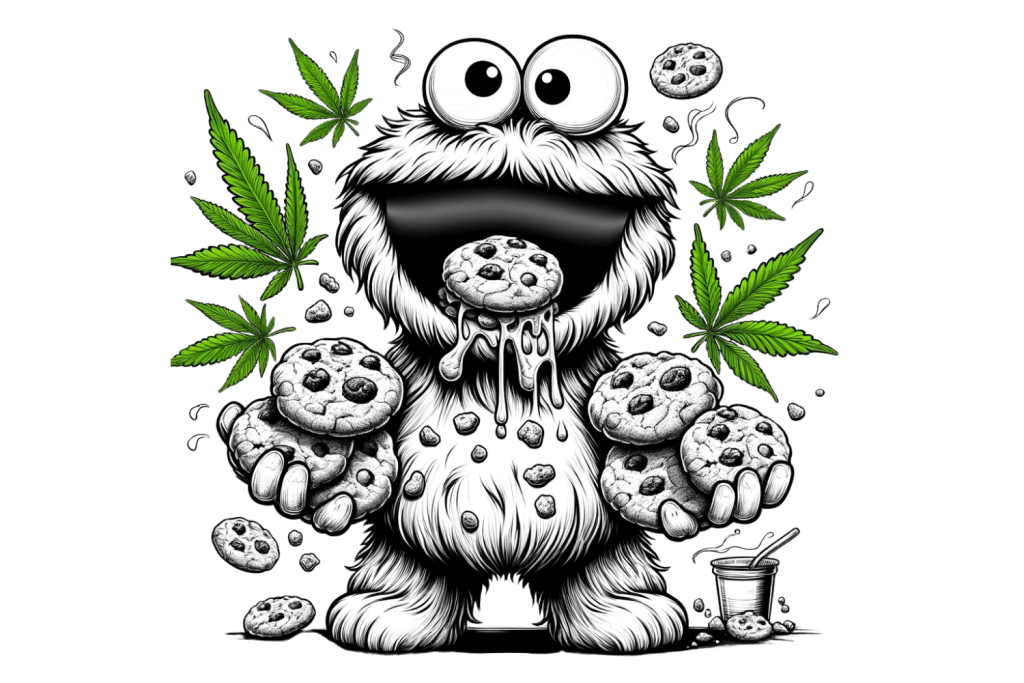
Managing the Munchies
The best way to reduce or avoid the munchies when smoking weed or eating edibles is to consume low-THC products.
As THC is the primary (but not only) cannabinoid responsible for increasing appetite, taking smaller doses can lessen or completely negate the munchies. Products labeled as “THC microdoses” are the least likely to give you the munchies.
High-CBD products can have the opposite effect and lower your appetite [7]. Weed with high CBD and high THC can have a more balanced effect.
CBD is not the only cannabinoid known to reduce appetite. There’s also tetrahydrocannabivarin (THCV) — a non-psychoactive cannabinoid that reduces appetite and increases satiety. Due to this, THCV might be useful for the treatment of obesity and type 2 diabetes [8].
Another less cannabinoid-heavy way of managing your munchies is to drink plenty of water. Staying hydrated can help you feel full and lower your cravings; flavored water or fruit juice can satisfy your itch for something sweet.
Does Weed Cause Weight Gain?
The answer to this question is complicated, and there is conflicting evidence, but so far, most studies show that there is no link between cannabis use and BMI [9].
However, there are studies associating cannabis use with both a lower [10] and higher BMI [9].
Generally, the risk of gaining weight from the munchies is higher for people who are already overweight or obese, but the quality and quantity of the food will have the most significant impact. It should go without saying, but you’re far more likely to put on extra pounds if you eat chips, chocolate, or pie instead of fruit, yogurt, or hummus.
And on the flip side, one must note that THC alone may not be enough to help underweight people regain a healthy BMI. Seek medical advice before considering self-medication.
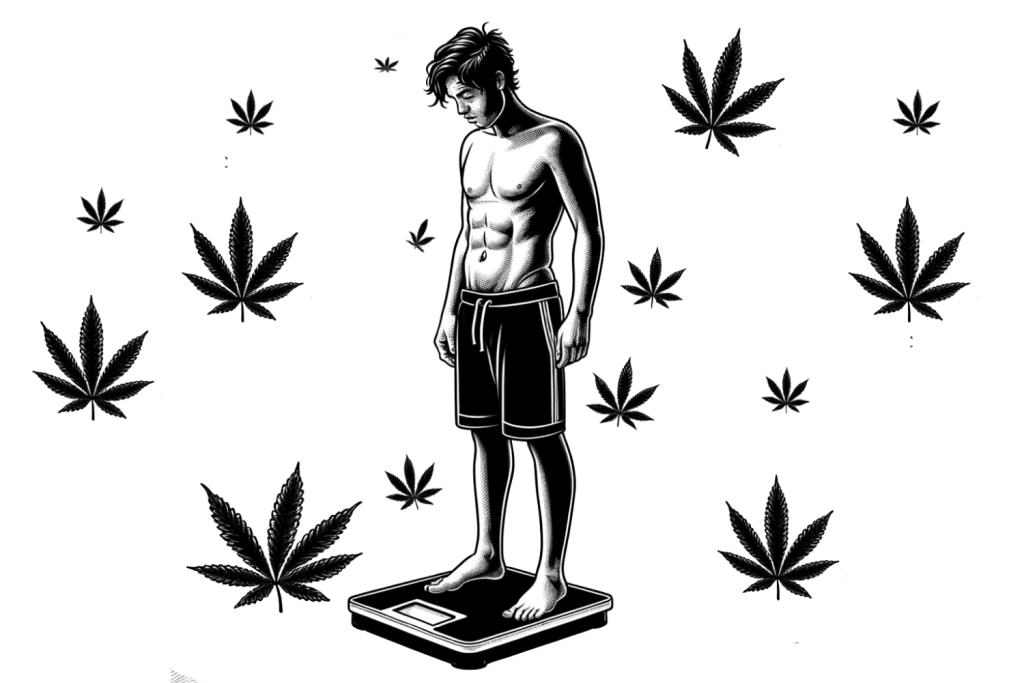
Can You Block Your Cannabinoid Receptors?
We know that cannabinoid receptors (specifically CB1) increase appetite when activated by THC, so it makes sense that blocking them would decrease it.
When your CB1 receptors are blocked, your body produces more adiponectin — a hormone that decreases when you gain weight [11].
Researchers decided to use that knowledge to make rimonabant, an anti-obesity drug that reduces compulsive eating.
Human test results were optimistic initially: people taking rimonabant were losing weight as expected. However, some individuals began to show concerning problems.
It turns out that when you block CB1 receptors, you reduce appetite and derive less dopamine from eating. However, the subjects got less dopamine from everything, which caused nausea, dizziness, anxiety, severe depression, and suicidal thoughts [12].
Because of this, research on rimonabant was halted, and the FDA did not approve the drug.
Researchers are still looking for breakthroughs that will help fight obesity.
FAQs: The Weed Munchies
Here are the answers to some questions you might be asking.
1. Do edibles give you the munchies?
Yes, edibles will make you feel hungry. In fact, as the effects of edibles take longer to manifest and last longer, the munchies you get from edibles will last longer, too.
2. Will CBD make me hungry?
No, CBD does not increase appetite. Many cannabinoids will make a weed user hungry, such as THC and CBG, but CBD has the opposite effect. Alongside THCV, CBD reduces appetite, and high-CBD products can negate the munchies.
3. Is sativa or indica better for hunger?
If you want to stimulate your appetite, then indica weed is the best option. Contrary to popular belief, many indica strains tend to have higher THC levels than sativa strains, so they’re more likely to make you feel hungry.
Ultimately, though, it comes down to THC levels, and those vary from strain to strain.
References
- Koch, M. et. al. (2015) Hypothalamic POMC neurons promote cannabinoid-induced feeding. National Center for Biotechnology Information. https://www.ncbi.nlm.nih.gov/pmc/articles/PMC4496586/
- Cota, D. et. al. (2003) Endogenous cannabinoid system as a modulator of food intake. National Center for Biotechnology Information. https://pubmed.ncbi.nlm.nih.gov/12629555/
- Nelson, K., Walsh, D., Deeter, P. & Sheehan, S. (1994) A phase II study of delta-9-tetrahydrocannabinol for appetite stimulation in cancer-associated anorexia. National Center for Biotechnology Information. https://pubmed.ncbi.nlm.nih.gov/8035251/
- Brierly, D. I., Samuels, J., Duncan, M., Whalley, B. J. & Williams, C. M. (2016) Cannabigerol is a novel, well-tolerated appetite stimulant in pre-satiated rats. National Center for Biotechnology Information. https://pubmed.ncbi.nlm.nih.gov/27503475/
- DiPatrizio, N. V. & Piomelli, D. (2012) The thrifty lipids: Endocannabinoids and the neural control of energy conservation. National Center for Biotechnology Information. https://www.ncbi.nlm.nih.gov/pmc/articles/PMC3744874/#S2title
- Mattes, R. D., Engelman, K., Shaw, L. M. & Elsohly, M. A. (1994) Cannabinoids and appetite stimulation. National Center for Biotechnology Information. https://pubmed.ncbi.nlm.nih.gov/7816872/
- Spanagel, R. & Bilbao, A. (2021) Approved cannabinoids for medical purposes – Comparative systematic review and meta-analysis for sleep and appetite. ScienceDirect. https://www.sciencedirect.com/science/article/abs/pii/S0028390821002355?via%3Dihub
- Aboiye, A. et. al. (2020) Δ9-Tetrahydrocannabivarin (THCV): a commentary on potential therapeutic benefit for the management of obesity and diabetes. Journal of Cannabis Research. https://jcannabisresearch.biomedcentral.com/articles/10.1186/s42238-020-0016-7
- Rodondi, N. et. al. (2006) Marijuana use, diet, body mass index, and cardiovascular risk factors (from the CARDIA study). The American Journal of Cardiology. https://doi.org/10.1016/j.amjcard.2006.03.024
- Rajavashisth, T. A. et. al. (2012) Decreased prevalence of diabetes in marijuana users: cross-sectional data from the National Health and Nutrition Examination Survey (NHANES) III. National Center for Biotechnology Information. https://pubmed.ncbi.nlm.nih.gov/22368296/
- Arita, Y. et. al. (1999) Paradoxical decrease of an adipose-specific protein, adiponectin, in obesity. National Center for Biotechnology Information. https://pubmed.ncbi.nlm.nih.gov/10092513/
- Moreira, F. A. & Crippa, J. A. S. (2009) The psychiatric side-effects of rimonabant. National Center for Biotechnology Information. https://pubmed.ncbi.nlm.nih.gov/19578688/

